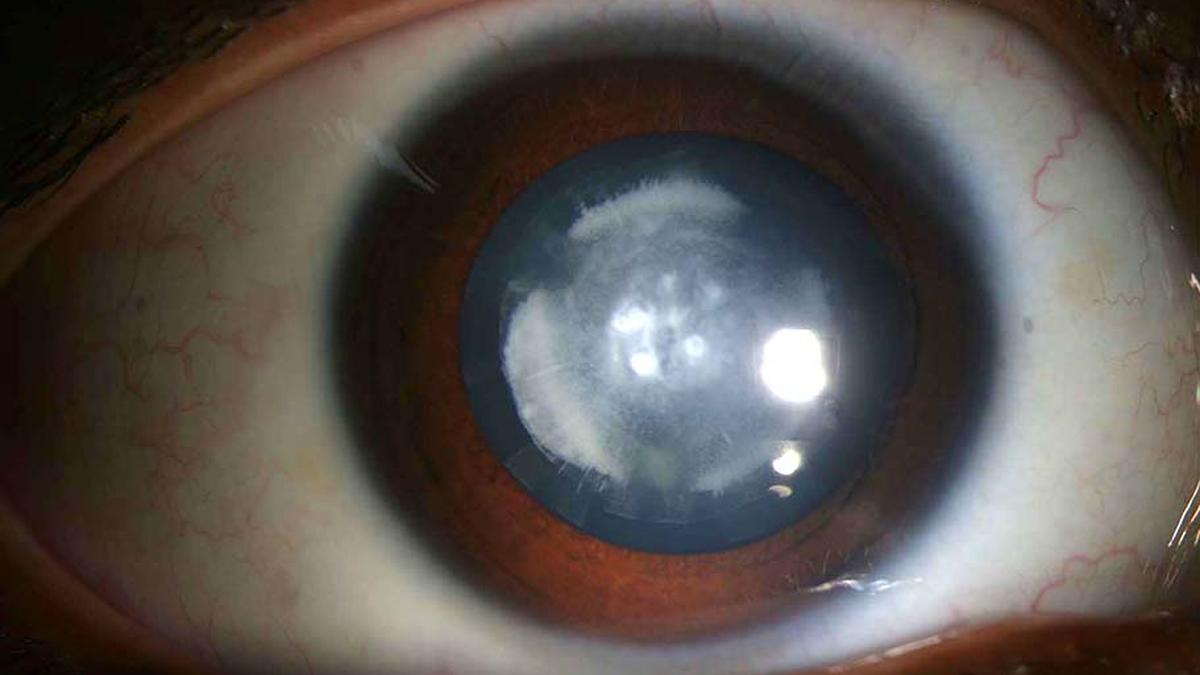
Women seek treatment for cataract later than men, impacting outcomes, finds study Premium
The Hindu
Study on cataract surgeries in Tamil Nadu reveals gender disparities in treatment, outcomes, and costs at Aravind Eye Hospitals.
An analysis of the success of cataract surgeries in Tamil Nadu has found that women and girls in general, receive treatment for cataract surgeries later than men. As a result, their post-operative vision is also poorer. Also, women tend to spend less money on the intraocular lens needed for the cataract surgery, as compared to men.
Aravind Eye Hospitals, a premier eye care centre headquartered Madurai, conducted a retrospective study of cataract surgeries it performed over a period of 12 years, from 2012 to 2023. The study, ‘Changing patterns in cataract surgery indications, outcomes and costs, 2012-2023: a retrospective study at Aravind Eye Hospitals, India’, was published in the February 2025 edition of The Lancet Regional Health Southeast Asia.
The hospital had performed 3.6 million cataract surgeries during the study period and found that prior to surgery, women presented with worse vision than men in all age groups and among all segments such as outreach, subsidised and paying patients. However, post-operative visual acuity outcomes steadily improved in all the segments, the follow-ups showed.
The hospital performs phacoemulsification and manual small incision cataract surgeries (MSIC). The phacoemulsification procedure uses ultrasound waves to break and remove a cataractous lens while in MSIC, a small incision is made in the eye to remove the cataract. The latter method is less expensive. The hospital found that the gains were larger in this method than in phacoemulsification.
Aravind Hospitals’ records also found that men consistently paid 10% higher prices than women as they chose more expensive intraocular lenses.
One of the authors of the study Shivkumar Chandrashekaran said: “We developed Cataract Quality Assurance (software), and from 2012 we have complete data. This has been used to analyse these trends. It also includes patients in Andhra Pradesh in Tirupati, where we started services in 2018-19.” Dr. Shivkumar is the head of the cataract and IOL clinic at Aravind Hospitals, Tirunelveli. The centre performs around 50,000 surgeries, which is 10% of the total surgeries done by the hospital group. During the COVID-19 pandemic there was a blip, but in 2021 the backlog came in and by 2023 it was almost back at the normal flow prior to the pandemic, he explained.
The study period also revealed sociological changes. Surgeries supported by insurance and government assistance increased from 4.4% in 2012 to 28.7% in 2023. Spending capacity and health insurance coverage both had increased during the study period. “There are gender inequities though. The inequities are almost the same throughout the State,” Dr. Shivkumar said. Also, younger people tended to delay treatment while older men were more ready for surgery.













